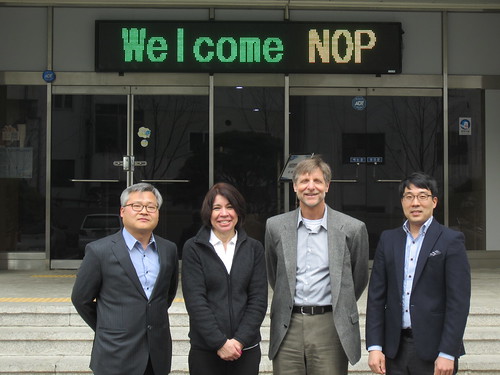
Last week, we celebrated another victory for the global organic community – the announcement of an organic equivalency agreement between the U.S. and the Republic of Korea. We are thrilled with the outcome!
Beginning July 1, 2014, processed organic products certified in Korea or in the U.S. may be sold as organic in either country, eliminating significant barriers and creating opportunities for American businesses across the organic supply chain as well as setting the foundation for additional organic agricultural trade agreements. Consumers in Korea will now be able to enjoy a wide range of U.S. organic exports including condiments, cereal, baby food, frozen meals, milk, and other processed products.
Under this Administration, the United States has also established organic trade arrangements with Canada, the European Union, and Japan. The Korean arrangement will streamline access to the growing Korean organic market for American producers and businesses, benefiting the thriving organic sector and supporting jobs and businesses on a global scale.
The new arrangement also reflects the strength of the USDA organic standards – the U.S. organic program sets the gold standard, which is one reason that Korea chose to work with the U.S. on its “first” organic equivalency arrangement. It also serves as an example of how closely the U.S. and Korea are working together to address emerging issues and strengthen our trade relationship. In 2013, Korea was the 6th largest market for U.S. agricultural exports—providing about one quarter of Korea’s agricultural imports and purchasing more than $5 billion of U.S. food and agricultural products.
According to U.S. industry estimates, the U.S. exported around $35 million of processed organic products to Korea in 2013. These exports came to a virtual standstill in January 2014, when Korea implemented mandatory organic certification requirements that required U.S. organic exports to be certified to Korean standards. U.S. operations wanting to access the Korean organic market were faced with a double set of fees, inspections, and paperwork. The U.S. negotiating team – led by representatives from the Office of the United States Trade Representative (USTR), Foreign Agricultural Service (FAS), and the Agricultural Marketing Service’s (AMS) National Organic Program (NOP) led by Deputy Administrator Miles McEvoy – worked expeditiously to reestablish access to Korea’s organic market while protecting the integrity of USDA’s organic standards.
Negotiations encompassed a side-by-side comparison of the USDA organic regulations and the Korean organic standards to determine if an equivalency arrangement would work. We also sent an audit team to Korea to evaluate their organic certification and enforcement provisions. After the thorough review, U.S. and Korean officials finalized the organic equivalency arrangement. Both the U.S. and Korea are committed to ensuring that all traded products retain their organic integrity from farm to market.
Through the NOP, USDA has helped organic farmers and businesses achieve $35 billion annually in U.S. retail sales. The organic community includes over 25,000 organic businesses in more than 120 different countries around the world, and the combined organic markets of the countries with which we have equivalency arrangements are valued at more than $50 billion. AMS and NOP are proud of USDA organic integrity, which helps propel strong growth in consumer demand for certified organic products and creates opportunities worldwide for American organic businesses.
